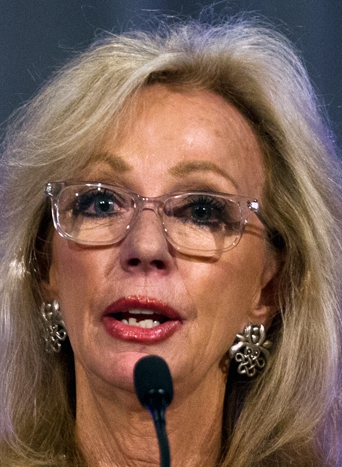Sunday, Sept. 11, 2016 | 2 a.m.
View more of the Sun's opinion section
Brian Greenspun is taking some time off and is turning over his Where I Stand column to others. Today’s guest columnist is Jan Jones Blackhurst, who from 1991 to 1999 was the first woman to serve as mayor of Las Vegas, and who today is Caesars’ executive vice president of government relations and corporate social responsibility.
Two. That’s the number of women who are among 34 highest-paid executives in Nevada’s casino industry.
And it’s not just about the money. If you look at the 10 most prominent gaming companies, there are only three women among the 50 most-senior executives.
The numbers are only slightly better if you look at the board members of those companies (Boyd, Caesars, IGT, Las Vegas Sands, MGM Mirage, Penn, Pinnacle, Red Rock, Scientific Games and Wynn).
It’s very likely that America is about to elect a female president (and based on current polling, she’ll have the support of a majority of Nevada voters). There’s a good chance that Nevada is about to elect a female U.S. senator. Two out of the last three mayors of Las Vegas were female (including yours truly). And the state ranks sixth in the country when it comes to the percentage of elected leaders who are female. Clearly, a majority of Nevadans believe that women are as capable as men of holding top leadership and executive positions.
So what’s going on in the gaming industry, which is far and away the largest employer in the state?
For years, we “explained” away disparities like this as a “natural byproduct” of certain industries that aren’t a “good fit” for women. Women aren’t as interested in gaming or technology, the explainers said, so the pool of potential leaders isn’t big enough.
Ironically, below the executive level, gaming is a model of equity, with one of the smallest gender pay gaps of any industry. As a result, Nevada is tied with Connecticut as the state with the smallest gender pay gap.
The primary reason for relative pay equity among non-executive workers is unionization. Gaming is one of the most heavily unionized industries in the country, and collective-bargaining agreements help ensure that employees with similar seniority doing similar jobs will also receive comparable pay.
The role of union contracts demonstrates a critical point: historically, moves to social equality are driven by a combination of formal standards and courageous or visionary leadership.
Unions create formal standards. So does legislation (for example, the Civil Rights Act of 1964; the 19th Amendment to the Constitution, which guaranteed women the right to vote; and Title IX, which prohibited discrimination in education on the basis of gender).
Formal standards don’t have to be mandatory. Setting expectations and measuring performance against those expectations can be almost as effective. A perfect example already exists: in 2002, the Human Rights Campaign Foundation created a voluntary Corporate Equality Index that measures American companies based on their workplace equality for gays, lesbians and bisexual and transgender employees. In 2015, 366 American companies received perfect scores, including Caesars, Cosmopolitan, MGM Resorts and Wynn. The index shone a spotlight on workplace equality practices, and companies responded because it was in their best interest to do so. They changed their policies to improve their scores … and improve their appeal to prospective employees and customers.
But social equity can also be achieved through visionary leadership, and we needn’t look far to see that principle at work. At Switch, a $3 billion data company based in Las Vegas, seven of the top 14 executives are women. Nobody made them do it; the female executives credit founder and CEO Rob Roy for creating a workplace culture in which women are treated with respect and equality.
So what does the gaming industry need to do, and who needs to do it? Clearly, legislation and unionization aren’t the right routes. No law can require a company to hire more female executives — or any other demographic group, for that matter. And executives aren’t represented by unions.
This change can only happen in two ways: setting highly visible goals for the industry, and visionary leaders.
That’s why we as an industry need to set specific goals for the percentage of women in top executive positions and on boards of directors. And then we need annual reports that measure performance.
Just about two weeks ago, 29 companies, including Apple, Facebook, Microsoft, Target, Visa and General Motors, signed a pledge to close the gender pay gap for their employees. That’s precisely the kind of measurable, formal standard that produces real progress toward social equity.
Nevada’s gaming industry should follow the example set by these companies and pledge to meet tangible goals for the number of women in senior leadership positions and boards of directors.
This industry is renowned for its visionary leaders. Which one will take the lead in bringing more women into top positions? Which CEO will take it upon himself to make a greater effort to hire women in top executive positions — even if that means looking outside the gaming industry? And which board of directors will create strict expectations about the need to hire more women in leadership positions?
I don’t know. I’m going to go shopping.


Join the Discussion:
Check this out for a full explanation of our conversion to the LiveFyre commenting system and instructions on how to sign up for an account.
Full comments policy